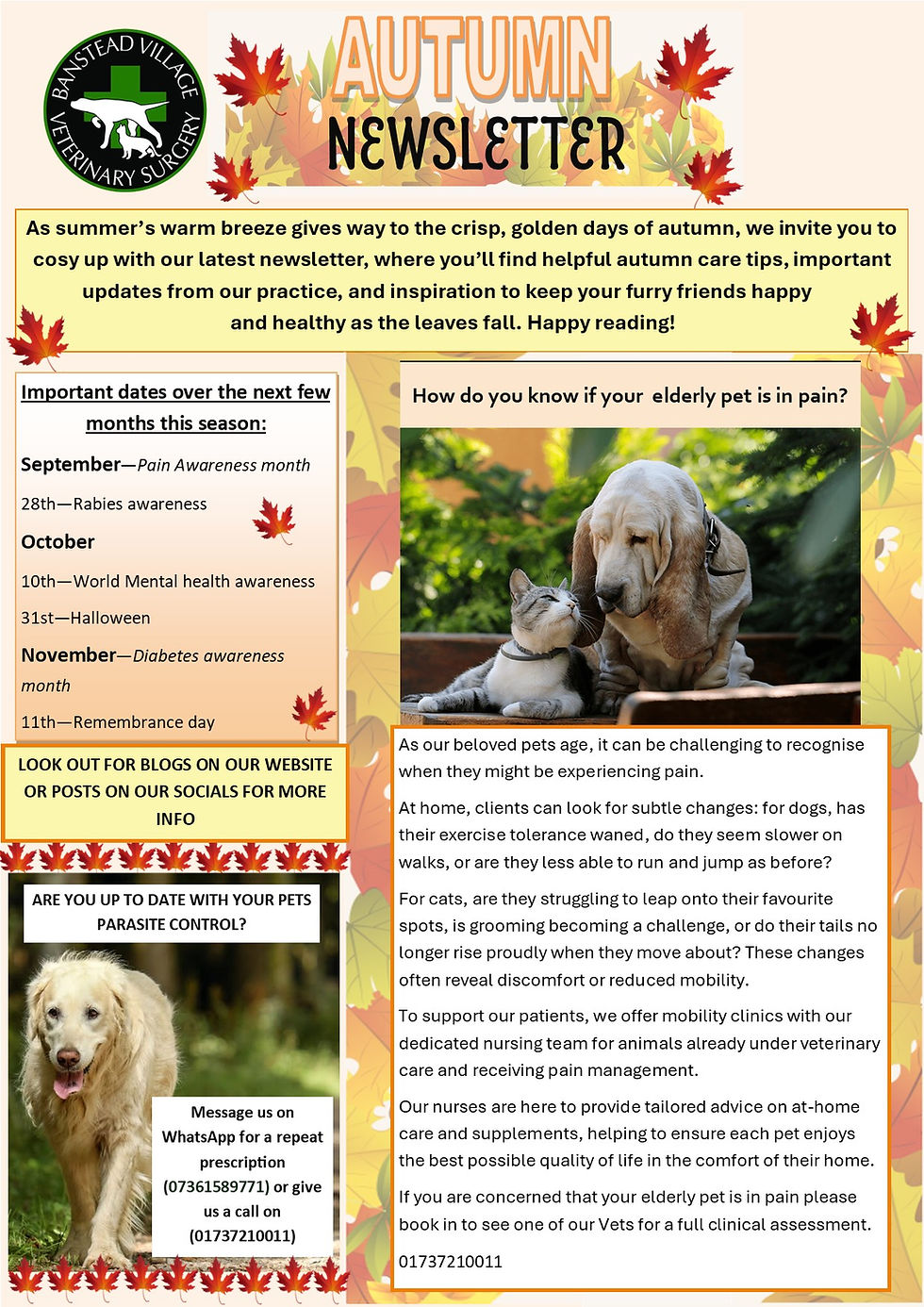Dog Vaccinations
- Caitlynn Reid
- Aug 12
- 2 min read
Here is a bit more information on the disease we vaccinate dogs against

Distemper
Distemper is a highly contagious viral infection spread through contact with infected dogs, and on items they have touched. Symptoms include: fever, coughing, vomiting, diarrhoea, seizures, paralysis and sadly often this disease is fatal. There is no specific treatment for distemper it. Therefore, vaccination is the best way to protect your dog and prevent the spread of this serious disease.
Hepatitis (canine adenovirus)


Hepatitis (canine adenovirus) is a viral infection that affects the liver and kidneys of dogs. It can cause fever, loss of appetite, vomiting, jaundice, bleeding and eye inflammation. Hepatitis can be spread by contact with infected urine, saliva or faeces, or by bites from infected mosquitoes or ticks. Hepatitis can damage the organs and immune system of dogs and may be fatal. Vaccination can protect your dog from hepatitis and prevent the transmission of this dangerous disease to other dogs.
Canine parvovirus

Parvovirus is a very contagious and dangerous virus that affects the intestines of dogs. It can cause severe vomiting, diarrhoea, dehydration, loss of appetite and weight loss. Parvovirus can also damage the heart muscle and the immune system of dogs, making them more susceptible to other infections. Parvovirus can be spread by contact with infected dogs, faeces, soil, water or objects. Parvovirus can survive in the environment for a long time and is resistant to many disinfectants. Parvovirus can be fatal, especially in puppies and young dogs. Vaccination can protect your dog from parvovirus and prevent the transmission of this deadly disease to other dogs.
Leptospirosis

Leptospirosis is a bacterial infection that affects the kidneys, liver and other organs of dogs. It can cause fever, vomiting, jaundice, bleeding, kidney failure and death. Leptospirosis can be spread by contact with infected urine, water or soil, or by bites from infected rodents or wildlife. Leptospirosis can also infect humans and cause serious illness. Vaccination can protect your dog from leptospirosis and prevent the transmission of this zoonotic disease to you and your family. We use the L4 vaccine, which covers four strains of leptospirosis, including two that are becoming more common in the UK.
Canine infectious respiratory disease (CIRD) - Bordetella bronchiseptica, Canine parainfluenza

Canine infectious respiratory disease (CIRD) is a term that covers various respiratory infections in dogs, caused by different bacteria and viruses. The most common agents are Bordetella bronchiseptica, a bacterium that causes kennel cough, and canine parainfluenza, a virus that causes mild to moderate signs of coughing, sneezing and nasal discharge. CIRD can be spread by direct contact with infected dogs or by airborne droplets from coughing or sneezing. CIRD can affect dogs of any age, but is more serious in puppies, elderly dogs and dogs with other health problems. Vaccination can protect your dog from CIRD and reduce the severity and duration of symptoms if they get infected. Vaccination is particularly important for those frequently exposed to other dogs in kennels, shows, parks or groomers.







Comments